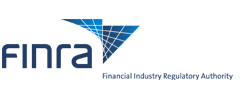
FINRA Issues New Investor Alert: Closed-End Fund Distributions: Where is the Money Coming From?
WASHINGTON—The Financial Industry Regulatory Authority (FINRA) issued a new Investor Alert called Closed-End Fund Distributions: Where Is the Money Coming From? to explain what closed-end funds are, how they differ from traditional mutual funds, what a distribution rate is and what to ask before investing. Closed-end funds have become popular investments because some offer high distribution rates—as high as 6 percent or more. However, investors should be aware that a fund's distribution rate is not the same thing as its return—even if the numbers might look similar. Closed-end funds typically pay distributions to investors on a monthly or quarterly basis, and may increase or decrease the distribution rate from one distribution period to the next.
"Investors considering investing in closed-end funds should understand that while the fund's distributions can include interest income, dividends or capital gains, in some cases distributions also include a return of principal," said Gerri Walsh, FINRA's Senior Vice President for Investor Education.
FINRA's new investor alert explains that closed-end funds are similar to mutual funds in that they professionally manage portfolios of stocks, bonds or other investments (including illiquid securities). But unlike mutual funds, which continuously sell newly issued shares and redeem outstanding shares, most closed-end funds offer a fixed number of shares in an initial public offering (IPO) that are then traded on an exchange.
Closed-End Fund Distributions advises investors to ask six questions before investing in a closed-end fund:
- Does a closed-end fund fit into my investment objectives?
- What is the closed-end fund's investment strategy?
- How much of what I pay per share in an IPO will actually be invested?
- What are the tax implications?
- How is the distribution rate set?
- Are the shares trading at a premium or discount to NAV?
FINRA is the largest non-governmental regulator for all securities firms doing business in the United States. FINRA is dedicated to investor protection and market integrity through effective and efficient regulation and complementary compliance and technology-based services. FINRA touches virtually every aspect of the securities business—from registering and educating all industry participants to examining securities firms, writing and enforcing rules and the federal securities laws, informing and educating the investing public, providing trade reporting and other industry utilities, and administering the largest dispute resolution forum for investors and registered firms. For more information, please visit our website at www.finra.org.
